Readers' Choice Awards 2010
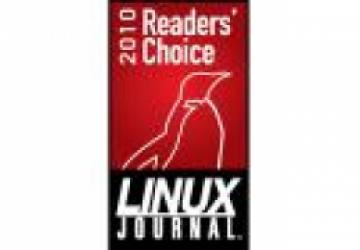
The votes are in! Read on to find out how your favorites fared in this year's awards.
Welcome to the 2010 Linux Journal Readers' Choice Awards. We love doing these awards because we get to interact with you, our readers, more than usual. This year, more than 12,000 of you generously took time to participate and share your perspectives on what tools are helping you work and play. We always are fascinated by your preferences and how your usage patterns change over time. This year, we have more categories than ever, so let's get right to the results. Here, ladies and gentlemen, Linux geeks of all kinds, are the winners of your 2010 Linux Journal Readers' Choice Awards.
Best Linux Distribution
Honorable Mention/Runner Up:
PCLinuxOS
Third Place:
Debian
Fourth Place:
Fedora
Fifth Place:
Pardus
Times they are a changin' (just a bit) in the distribution department
this year. Although Ubuntu in all its tasty flavors remains the Roger
Federer-esque champion of Linux distros, the dynamics of this category
have changed from the past two years. In 2008, Ubuntu was dubbed
the “big distro that did” for “unexpectedly leaving its myriad 'rivals'
as mere dots in the rear-view mirror”. Then in 2009, Ubuntu received
the “Energizer Bunny Award” for increasing its popularity and becoming
untouchable (for the time being). But what a difference a year can make
(just ask Tiger Woods). Ubuntu remains in the commanding lead, but it slipped a
considerable 13% from of your votes last year.
Meanwhile, a feisty, upwardly mobile distro, PCLinuxOS,
grew from the single digits to a full 15%,
meriting a worthy honorable mention recognition.
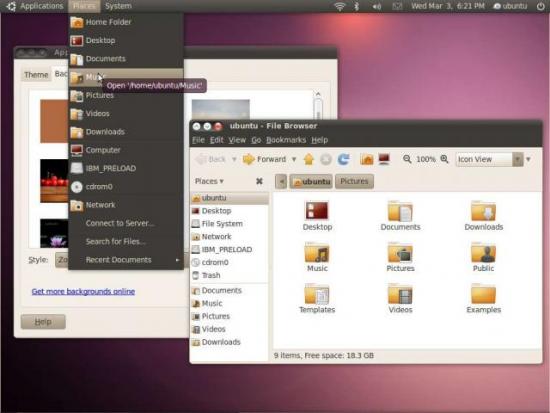
Best Distribution for Netbooks/Limited Hardware
Honorable Mention/Runner Up:
Google Android
Third Place:
MeeGo
Fourth Place:
Puppy
Fifth Place:
PCLinuxOS LXDE
New for the 2010 Readers' Choice Awards is the category Best
Distribution for Netbooks/Limited Hardware. This will be an interesting
category to monitor as time goes by, but the current leader is Ubuntu
Netbook Remix, which got a commanding 36% of your votes. The honorable
mention winner, Android OS, was far behind, but it
broke the 10% barrier. We predict that this category will become more
fiercely competitive in the future.
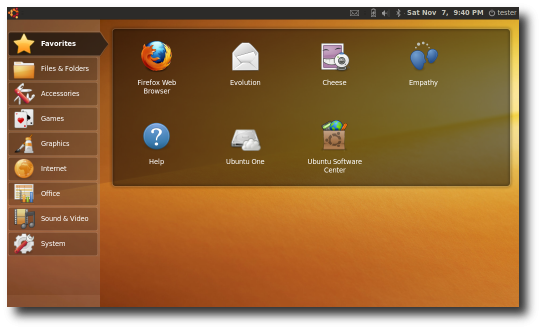
Best Mobile OS
Honorable Mention/Runner Up:
MeeGo
Third Place:
Symbian
Fourth Place:
Maemo
Fifth Place:
Moblin
Last year, Android and the T-Mobile G1 smartphone took home Linux Product of the Year honors, despite being absent from every other category selected by us (point taken, dear readers). One year wiser, we present a new category for 2010, Best Mobile OS, and its logical winner is Google's Android. But wait! Although Android's vote haul was impressive at 66%, the new MeeGo made a strong showing for honorable mention, which is noteworthy in its own right. The upstart MeeGo, a fusion of Nokia's Maemo and Intel's Moblin projects, garnered 10% on its own. Then, add the 7% of you who selected Maemo and 3% who selected Moblin individually to arrive at a healthy 20%. Meanwhile, old-timer Symbian missed the cut.
Best Desktop Environment
Runner Up:
Xfce
Third Place:
LXDE
Fourth Place:
Fluxbox
The results from the Best Desktop Environment make more intuitive sense to
us (and to this KDE fan) than in the previous two bouts, when GNOME edged
out KDE by surprisingly healthy margins. In the 2010 battle royale, KDE
jiu-jitsued GNOME and gobbled 7% of its lunch (as well as 3% of Xfce's) to
even the desktop score from last year. No other desktop surpassed the 3% mark.

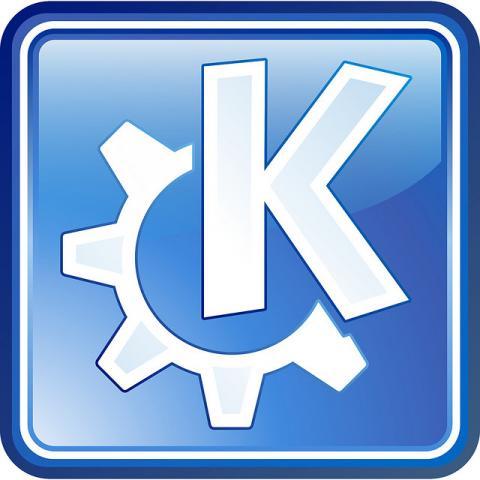
Best Web Browser
Honorable Mention/Runner Up:
Chrome
Third Place:
Opera
Fourth Place:
Konqueror
Fifth Place:
Mozilla Seamonkey
In the 2009 Readers' Choice Awards, 87% of you voted to seat the Mozilla Firefox
browser comfortably on the throne of Best Web Browser. Meanwhile, Google
Chrome was just making its debut on the Linux stage (most commonly in the
form of the CrossOver Chromium Project) and began appearing on your “to tinker
with” lists. We suggested last year that by awards time in
2010,
you should “look for an inevitable battle royale if Google can deliver
a polished Chrome for Linux in time for you to give it a test-drive”.
Well, folks, that battle has ensued, and the era of unchallenged Firefox
supremacy is over. Chrome leaped from a barely perceptible 0.35% of
the vote in 2009 to 24% this year.
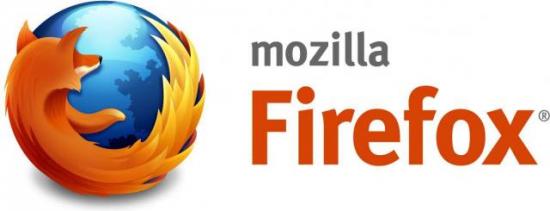
Best E-mail Client
Honorable Mention/Runner Up:
Gmail web client
Third Place:
Kmail
Fourth Place:
Evolution
Fifth Place:
mutt
In 2009, we suggested the apparently inevitable decline of the desktop
e-mail client in favor of Web-based clients like Gmail. It looks like the
official LJ Magic 8-Ball was in need of another shake, for Thunderbird
handily has won the Readers' Choice Award for Best E-mail Client for the
fourth consecutive year. Surprisingly, the previously upward trend for Gmail
hit a ceiling (at least for now), and it lost a few points from last year,
at the primary expense of Kmail, which came back onto your radar screens
to garner a healthy 14% of the vote.
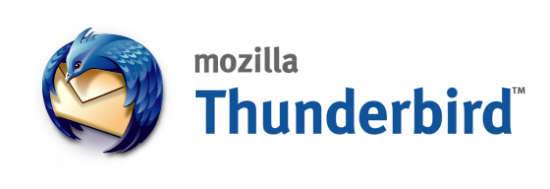
Best IM Client
Honorable Mention/Runner Up:
Skype
Third Place:
Kopete
Fourth Place:
empathy
Fifth Place:
amsn
Despite our redubbing of this category from Favorite Communications Tool
to Best IM Client, the results changed
only slightly. For the third year in a row, the no-protocol-left-behind
Pidgin Internet Messenger took top honors—with an identical 43% share
of your votes vs. last year to boot. In the honorable mention column,
the closed-source but so useful Skype took top honors, dropping a point
from 2009 (17% vs. 18%).
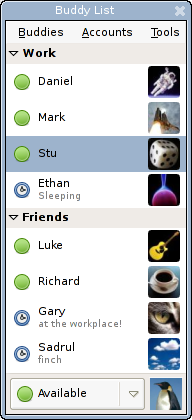
Best IRC Client
Honorable Mention/Runner Up:
Xchat
Third Place:
irssi
Fourth Place:
konversation
Fifth Place:
Quassel
Although you have plenty of choices when it comes to IRC chat clients, the overwhelming majority of you stay put on Pidgin or fire up the multiplatform XChat for your IRC-based chats—39% of you prefer Pidgin and 33% prefer XChat.
Best Microblogging Client
Honorable Mention/Runner Up:
Choqok
Third Place:
Jaiku
Fourth Place:
Spaz
Fifth Place:
Nitwit
This new category for 2010, Best Microblogging Client, also
would have the top five entrants in Best-Named Linux Application. The hands-down
winners would be Gwibber, Choqok, Nitwit and our personal favorite, Spaz.
Despite parity regarding the name-related coolness factor, the generalist and
GNOME-based Gwibber easily took the crown for Best Microblogging Client,
followed by the more specialist KDE-based Choqok.
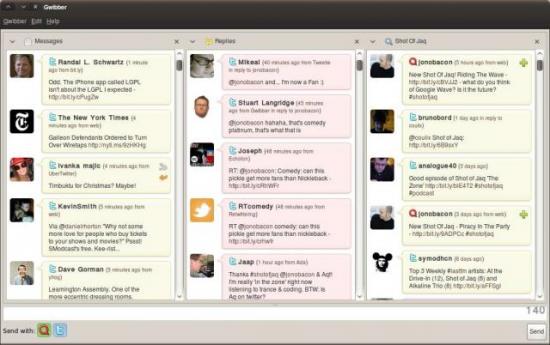
Best Office Suite
Runner Up:
Google Docs
Third Place:
KOffice
Fourth Place:
IBM Lotus Symphony
Fifth Place:
GNOME Office
No shake-ups here, gang. OpenOffice.org remains your uncontested choice
for Best Office Suite, and no program even passed the 10% threshold
to warrant honorable mention. Keep your eye on Google Docs though,
because it showed up this year for the first time with 8%
of the vote. In this as in most categories, cross-platform capability
appears to boost a program's popularity significantly. Are Web-based apps
going to take over, or will desktop apps remain dominant in this space?
This area will be interesting to watch.

Best Single Office Program
Honorable Mention/Runner Up:
AbiWord
Third Place:
OOCalc
Fourth Place:
Scribus
Fifth Place:
KWord
Given that there are many more office applications than office suites, we
created this new category (Best Single Office Program) to understand
the nuances of our community's work habits better. Although the OpenOffice.org apps
Writer and Calc both performed well, with Writer winning the category handily
with 39% of the vote. AbiWord from
GnomeOffice also
helps you get your work done quickly and effectively.

Best Graphics/Design Tool
Honorable Mention/Runner Up:
Inkscape
Third Place:
Blender
Fourth Place:
Krita
This year's plebiscite features identical award winners
in the Best Graphics/Design Tool category—GIMP for the win and
Inkscape for honorable mention. The only difference from last year is
that GIMP inched down a few points and Inkscape up a few points.
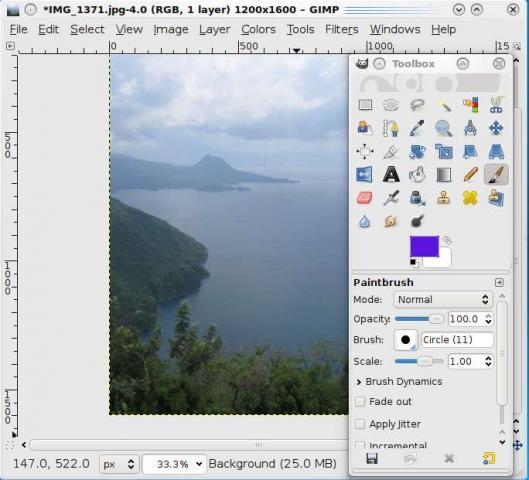
Best Digital Photo Management Tool
Honorable Mention/Runner Up:
Picasa
Third Place:
F-spot
Fourth Place:
Gwenview
Fifth Place:
gThumb
The back-and-forth tussle between digiKam and Picasa is looking more and
more like a WWE SmackDown. In 2008, the two photo apps were tied for your
favorites in the crowded category of Best Digital Photo Management Tool.
Then last year, Picasa gave digiKam a royal piledriver and racked up
nearly triple the votes of its poor rival. But this year, digiKam had
a surprise Diving Bulldog up its sleeve and had enough energy left to
pin Picasa to the mat for the win.
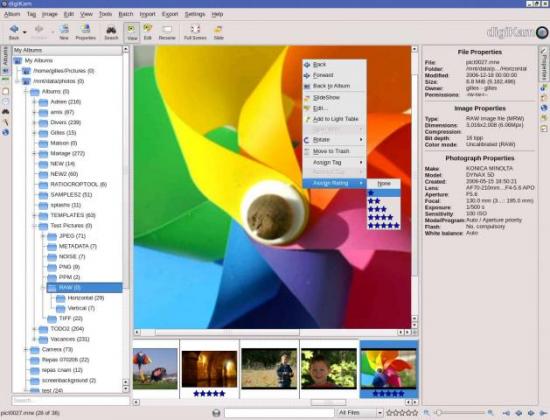
Best Audio Tool
Runner Up:
Ardour
Third Place:
LMMS
Fourth Place:
VLC
Fifth Place:
Jokosher
In the Best Audio Tool category, the program Audacity becomes more dominant every year, winning the 2010 award with a resounding 81% of your preferences, up 8% from last year. The popular cross-platform sound recorder and editor has little competition—only 8% of you consider Ardour your favorite audio tool.
Best Audio Player
Honorable Mention/Runner Up:
RythmBox
Third Place:
XMMS
Fourth Place:
Banshee
Fifth Place:
Songbird
Your preferences for Best Audio Player this year are consolidating around
two favorites, namely the winner, Amarok, and the sole honorable mention,
Rhythmbox. Previously, this category was more crowded
with contenders. However, Amarok is one of those apps that is riding
the wave of resurgence we're seeing in KDE and its related applications.
It doesn't hurt that Amarok is one kick-butt music app too.
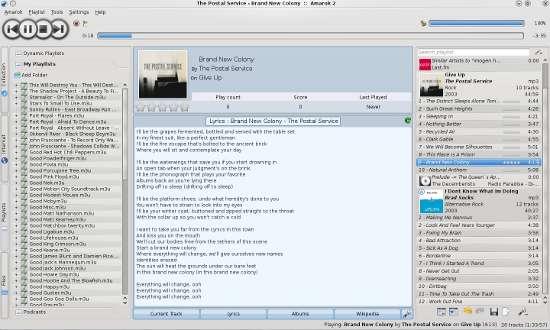
Best Media Player
Honorable Mention/Runner Up:
MPlayer
Third Place:
SMPlayer
Fourth Place:
Kaffeine
Fifth Place:
Totem
After winning the Best Media Player award for 2009 by a single percentage
point, there's no looking back for VLC, which won again in 2010, this
time with more than triple the votes of its nearest rival, MPlayer.
VLC's attraction could be the fact that it plays nearly any audio
(or video) format you send its way, as well as its cross-platform
capabilities. If you happen to find yourself in front of a Mac or Windows
(or BeOS!) box, you're never far from “the cone”.
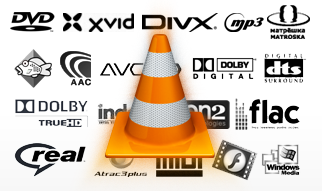
Best Bookmark Syncing Tool
Honorable Mention/Runner Up:
Delicious
Third Place:
Weave
Fourth Place:
Google Chrome Bookmark Sync
Nobody works on more machines than a Linux geek, so we're perfect
guinea pigs for rating the product in this new category, Best Bookmark
Syncing Tool. Your two favorites are Mitch Kapor's Xmarks (formerly
Foxmarks) and Yahoo!'s Delicious (er, deli.icio.us). Firefox's own Weave tool fared well, but
its Firefox-centricity may keep it from jousting at a higher level with
its multibrowser-capable rivals.
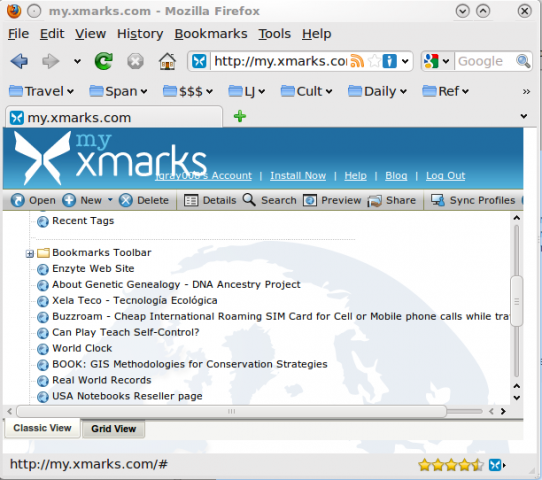
Best On-line Collaboration Tool
Honorable Mention/Runner Up:
Wikis
Third Place:
Google Wave
Fourth Place:
Zimbra
Fifth Place:
eGroupWare
On the surface, it's somewhat
counterintuitive how you love Google Docs as an on-line collaboration tool
but merely like it as an office suite. (See the results for Best Office
Suite above.) Perhaps it's because you use OpenOffice.org more for your
day-to-day work tasks but use Google Docs when the task specifically calls for
collaboration? Despite your penchant for Google's tools, a solid number
of you turn to wikis to share information with your dispersed colleagues.

Best Cloud-Based File Storage
Honorable Mention/Runner Up:
Ubuntu One
Third Place:
Amazon S3
Fourth Place:
ownCloud
Fifth Place:
SpiderOak
For creating a redundant off-site backup copy of your important files,
your tendency is to choose the popular Dropbox and Ubuntu One services.
Knowing how we Linux geek cheapskates work, I bet you're signed up for
the free 2GB accounts—40 separate ones to back up your 80GB drive.

Best Kid-Friendly Application
Honorable Mention/Runner Up:
GCompris
Third Place:
Scratch
Fourth Place:
Tux Typing
Fifth Place:
Tux of Math Command
The winner of the new category Best Kid-Friendly Application is Tux
Paint, a gleefully fun drawing program for kids.
Reading your comments, we also know good number of you have managed to
get Linux into your local school, so you've probably installed Tux Paint
free of charge for the students to use as a tool for art instruction. On
that same install, a sensible companion would be GCompris, a somewhat
more diverse set of educational applications for children.
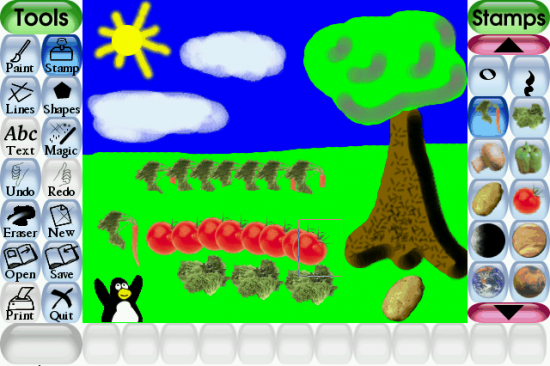
Best Game
Honorable Mention/Runner Ups:
Doom and Battle for Wesnoth (tie)
Third Place:
Battle for Wesnoth
Fourth Place:
Tux Racer
Fifth Place:
Enemy Territory Quake Wars
It is beginning to seem that no game will ever knock Frozen
Bubble from
its lofty perch as Best Game. Bubble has won the title every time.
Not only does Frozen Bubble lure you in with its pure simplicity, but
those penguins are just too darn cute! Take note though that the Battle
for Wesnoth has won honorable mention for the first time ever.
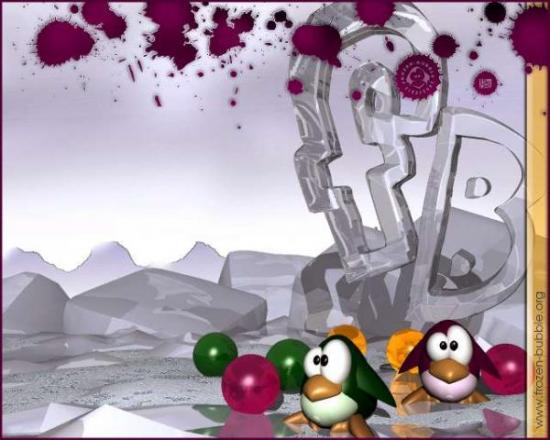
Best Database
Honorable Mention/Runner Up:
PostgreSQL
Third Place:
SQLite
Fourth Place:
Oracle
Fifth Place:
Firebird
We'll have to do something about the LAMP acronym if you ever give up
MySQL, which remains your choice for Best Database three years running.
Nevertheless, we've seen a bit of erosion in support for MySQL toward your
honorable mention pick of PostgreSQL, which has gained ground every year.
SQLite may soon find itself on the
board with the heavy hitters if it keeps climbing as well.
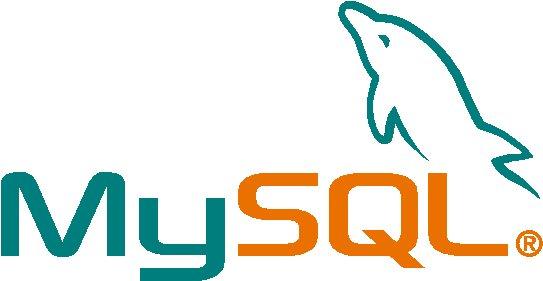
Best Backup Solution
Honorable Mention/Runner Up:
tar
Third Place:
Bacula
Fourth Place:
Amanda
Fifth Place:
Simple Linux Backup
Here's one case where we retrenched and reduced our categories, namely
combining Best Backup System and Best Backup Utility into a single
category called Best Backup Solution. Your choice for champion in this
category was rsync, the winner of Best Backup Utility in 2009, followed
by tar. Last year's winner
and honorable mention in the Best Backup System category, Amanda and
Bacula, respectively, also fared well in the votes.
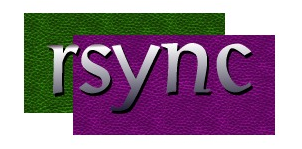
Best Virtualization Solution
Honorable Mention/Runner Up:
VMware
Third Place:
KVM
Fourth Place:
Xen
Fifth Place:
QEMU
If we had an award for Most Upwardly Mobile Linux Solution, it just might
be VirtualBox. You've been favoring VirtualBox more and more with each
passing year, such that a full 55% of you chose it as Best Virtualization
Solution this year, which is up an impressive 23% from last year and
more than double VMware's result of 23%.
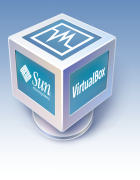
Best Monitoring Application
Honorable Mention/Runner Up:
Zabbix
Third Place:
Zenoss Core
Fourth Place:
Hyperic
Fifth Place:
Ganglia
When speaking of upwardly mobile Linux apps, we should include
Zabbix in the same breath, the classic monitoring application that could.
Coming out of the tiny country of Latvia, the enterprise-class monitoring
solution Zabbix went from also-ran last year to contender this year in
the category Best Monitoring Application. Of course, let's not forget that 34% of you still favor the
winner Nagios. However, Nagios is down 17% from last year's tally.
Zabbix definitely is worth keeping on your radar.
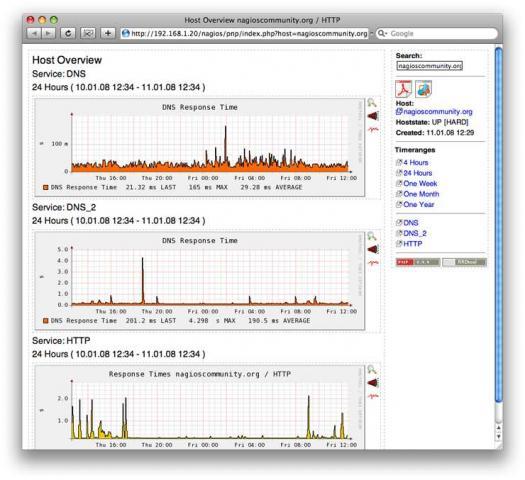
Best Revision Control System
Honorable Mention/Runner Up:
Apache subversion
Third Place:
cvs
Fourth Place:
bazaar
Fifth Place:
mercurial
Your two top picks for the Best Revision Control System are this year's winner, git, and last year's winner (and this year's sole honorable mention), Apache Subversion. In case you haven't done so already, you might want to investigate the origins of git, which was created by Linus Torvalds. The source of its name will give you a chuckle.
Best Programming Language
Honorable Mention/Runner Up:
C++
Third Place:
Java
Fourth Place:
C
Fifth Place:
Perl
Despite the tough field of contenders, Guido van Rossum's Python won
Best Programming Language
for the second straight year. Your votes came down nearly exactly the same
as last year, with C++ in second place.
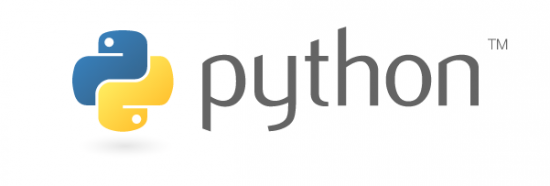
Best Scripting Language
Honorable Mention/Runner Up:
PHP
Third Place:
bash
Fourth Place:
Perl
Fifth Place:
Ruby
Two years ago, we tried to make our own distinction as to which languages were programming languages and which were scripting languages. We set up an elaborate set of criteria and attempted to justify our position. Well, you didn't appreciate our micromanagement, so we scrapped that idea for good. Now you decide which is which, and you have decided that Python is both the best programming language and scripting language out there.
Best IDE
Honorable Mention/Runner Up:
KDevelop
Third Place:
NetBeans
Fourth Place:
Qt Creator
Fifth Place:
vim
Eclipse is batting 1.000 in the Best IDE category, winning both of its
two years in existence. You've told us you like how Eclipse lets
you work in a lean environment and add and subtract an incredible array
of functionality via plugins.
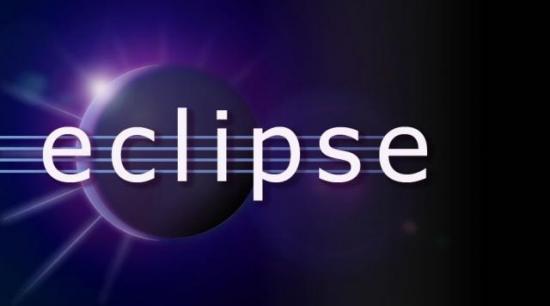
Best Open-Source Configuration Management Tool
Honorable Mention/Runner Up:
OpenQRM
Third Place:
Cfengine
Fourth Place:
Chef
Fifth Place:
Bcfg2
The new category Best Open-Source Configuration Management Tool turned out
to be one of the most crowded fields, yet Puppet Labs' Puppet application
managed to pull ahead of the pack. Perhaps it's
how Puppet considers each piece of infrastructure as code that has helped
you simplify new configurations and helped reduce the time you spend on
mundane tasks.
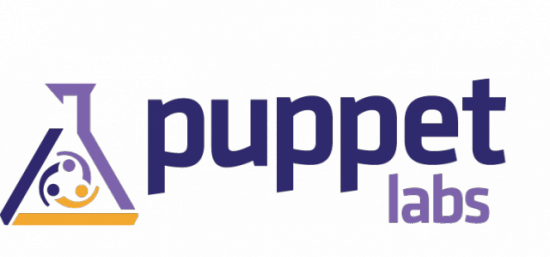
Best Platform for Developing Rich Internet Apps
Honorable Mention/Runner Up:
JavaFX
Third Place:
Google Gears
Fourth Place:
OpenLaszlo
Fifth Place:
Mono Moonlight
Adobe AIR seems to be solidifying itself as your choice for Best Platform for Developing Rich Internet Apps, winning the category both this year and last. AIR is trending upward, rising a few percentage points this year vs. 2009.
Best Package Management Application
Honorable Mention/Runner Up:
Synaptic
Third Place:
yum
Fourth Place:
aptitude
Fifth Place:
PiSi
Despite your continued overwhelming preference for Ubuntu and siblings, the success of package managers typically associated with these distros is a tad enigmatic. Let's parse it. You prefer Ubuntu's default apt as Best Package Management Application but a full 10% less than last year. At the same time, 8% more of you like Synaptic than last year to give it honorable mention again, so it's reasonable to assume that a good number of the Ubuntu-ite tribe are trying Synaptic and digging it. We can comprehend all of that, but KPackageKit, Kubuntu's default package manager, wasn't even on the radar despite KDE's surge to tie GNOME for Best Desktop Environment. What's going on here?
Best Content Management System
Honorable Mention/Runner Up:
Drupal
Third Place:
Joomla!
Fourth Place:
Alfresco
Fifth Place:
Plone
Your narrator had a total blast building a sweet, slick Web site with
WordPress, so he's totally in agreement your decision to grant it
Best Content Management System for 2010. My experience was positive, and
I put together a great design despite nearly no skill in graphic design.
We at Linux Journal also gave our vote to honorable
mention winner Drupal,
the platform we have used for the previous and the recently updated
LinuxJournal.com.

Best Linux-Friendly Web Hosting Company
Honorable Mention/Runner Up:
Contegix
Third Place:
Dreamhost
Fourth Place:
1&1
Fifth Place:
Rackspace
Although we have a clear winner for the Best Linux-Friendly Web Hosting
Company for 2010, GoDaddy.com, the reality is that five companies
have been jockeying for the title. Although GoDaddy.com won in 2008, it
fell out of the winner's circle in 2009. Then, there's your honorable
mention pick, Contegix, which was the winner last year. Companies like
Dreamhost, Rackspace and 1&1 also have been in contention every year.

Best Linux Laptop Vendor
Honorable Mention/Runner Up:
Lenovo
Third Place:
ASUS
Fourth Place:
Acer
Fifth Place:
EmperorLinux
For years, Dell (at least in the US) avoided Linux-based PCs like
the plague. We kept hearing how the market wasn't ready yet. We kept
saying “Sheesh, guys, build it and they will come.” Well, now they've
built it, and we have come—in droves! Dell dips its influential toe in
the water and suddenly gets more votes than anyone for Best Linux
Laptop Vendor. We're very curious to know how many of you are buying
Dell laptops preinstalled vs. self-installation. Are we right to assume
you're doing more of the latter? Our own hats are tipped graciously to Lenovo, who
has taken arguably more risks than any other
Windows-dominant laptop maker to put out great Linux-based laptops and
make them mainstream. Also, we salute the Linux PC specialists who have
been configuring our machines since the Precambrian. We hope you don't
forget them.
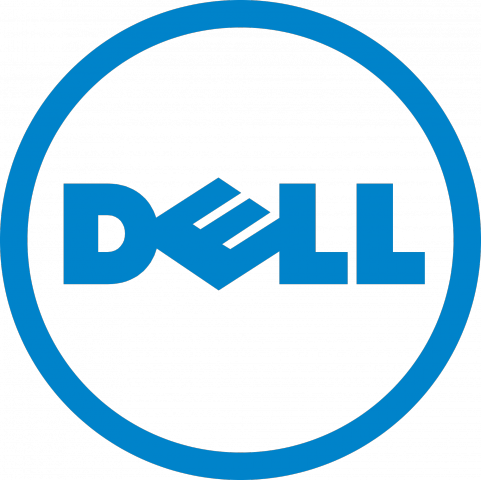
Best Linux Desktop Workstation Vendor
Honorable Mention/Runner Up:
Hewlett-Packard
Third Place:
System 76
Fourth Place:
Penguin Computing
Fifth Place:
ZaReason
The world's two biggest PC makers, Dell and HP, are your two top choices for Best Linux Desktop Workstation Vendor. This makes perfect sense, as installing Linux on desktops remains more trouble-free than doing so on laptops. Note that a spunky company, System 76—which proudly peddles Linux machines and doesn't make you enter through some backdoor link, only to find you've accidentally ordered a Windows machine—also did well in the voting.
Best Linux Server Vendor
Honorable Mention/Runner Up:
Dell
Third Place:
Hewlett-Packard
Fourth Place:
Sun Microsystems
Fifth Place:
System 76
In the Big Iron category, Best Linux Server Vendor, you gave more
votes to IBM than any other company. It makes sense given IBM's long-term
business strategy involving Linux. In 2009, Dell was the winner here,
and this year, it placed a close second behind Big Blue.
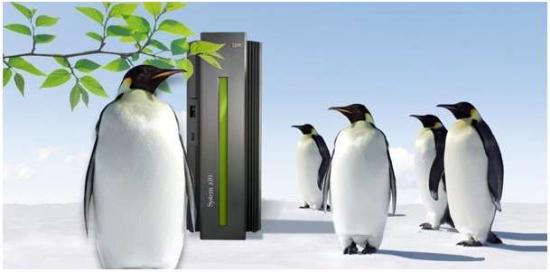
Best Linux Book
Honorable Mention/Runner Up:
Running Linux
Third Place:
Linux Bible
Fourth Place:
Linux for Dummies
Fifth Place:
Understanding the Linux Kernel
Given the hundreds of books on Linux-related topics, it was a Herculean task for any single book to win the category Best Linux Book. Nevertheless, we asked you to write in your favorite title, and the classic work Linux in a Nutshell (E. Siever, et al., O'Reilly) was your top pick, acquiring more than double its nearest competitor, Running Linux (Dalheimer and Welsh, O'Reilly). We're wondering though, why more of you didn't write in Just for Fun: The Story of an Accidental Revolutionary (Torvalds and Diamond, Harper) or The Cathedral and the Bazaar (Raymond, snowballpublishing.com). Who needs another copy of the syllabus for official Linux geeks?
Best Linux Journal Column
Honorable Mention/Runner Up:
Paranoid Penguin by Mick Bauer
Third Place:
Work the Shell by Dave Taylor
Fourth Place:
At the Forge by Reuven Lerner
Fifth Place:
diff -u by Zack Brown
Choosing the winner for Best Linux Journal Column is just as Herculean as
with Best Linux Book, except the problem is not the abundance of quantity
but rather extreme quality of each offering.
Kyle Rankin's Hack and / column has become the page that more of
you flip to first than any other. (Incidentally, Kyle's column has been
trending upward for some time—he tied for winner last year.)

Best Brand of Video Chipset
Honorable Mention/Runner Up:
ATI
Third Place:
Intel
Fourth Place:
VIA
Before wrapping up, let's get back to some of your favorite gear.
This year, we introduced the new category Best Brand of Video Chipset,
which was won handily by NVIDIA. Although we as a
community are frustrated with NVIDIA's proprietary drivers, we can rejoice
in the performance and Linux support, which is better than most.
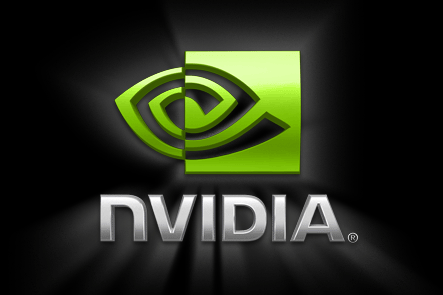
Best Linux Smartphone
Honorable Mention/Runner Up:
HTC Nexus One
Third Place:
Motorola Droid
Fourth Place:
HTC Droid
Fifth Place:
HTC Evo
No Linux Journal award show would be complete without a Nokia N-series
device, and the 2010 Readers' Choice Awards is no exception. The Nokia
N900 takes the award for Best Linux Smartphone. We're not too surprised
that you chose the N900 given that it's the most early-adopter phone out
there. That's us. The honorable mention in this category is
an Android: HTC Nexus One.
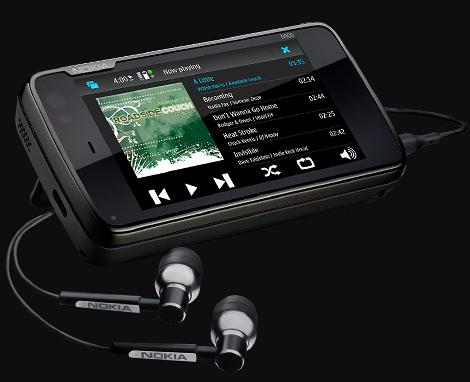
Best Linux-Based Gadget
Honorable Mention/Runner Up:
Tom Tom Navigation System
Third Place:
Nokia N810 Tablet
Fourth Place:
Sheeva Plug
Fifth Place:
Archos
The device that made reading an e-book a viable option is the Linux-based
Amazon Kindle, your winner for this year's Best Linux-Based Gadget.

Best New Open-Source Project (released in 2009 or 2010)
Honorable Mention/Runner Up:
OwnCloud
Third Place:
Android
Fourth Place:
CoffeeSaint
Fifth Place:
rekonq
For the category Best New Open-Source Project released in 2009 or 2010, we
asked you to write in your favorites without any prompting from us. Although the
responses were numerous, the winner is MeeGo! A little bit of Moblin in your Maemo, or
Maemo in your Moblin, this merger of two mobile operating systems is quite exciting.
It's fairly new, but will this open-source powerhouse become the next big thing? Your
votes seem to imply it, we'll have to wait and see.
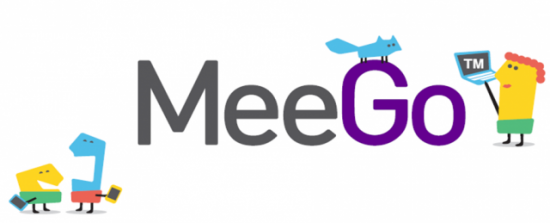
Best New Commercial Application (released in 2009 or 2010)
Runner Up:
CodeWeavers CrossOver Office for Linux
Third Place:
Nero Linux
Fourth Place:
Zenoss Enterprise
Fifth Place:
SoftMaker Office Suite
The race for Best New Commercial Application was neither as crowded
nor closely fought as the one for Best New Open-Source Project.
The hands-down winner was Fluendo DVD Player. Although we Linux geeks hate to pay, the product makes playing
any DVD possible, fully functional (and legal).
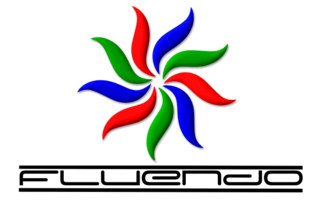
Product of the Year
Honorable Mention/Runner Up:
KDE
Third Place:
Fluendo DVD Player
Fourth Place:
zabbix
Fifth Place:
Pardus
We close with the category that requires a drumroll (drumroll, please): the 2010 Linux Journal Readers' Choice Product of the Year. And, the winner is Android! The open-source operating system from Google has proven to be a formidable opponent in the mobile-phone world. Because it's getting Linux into the hands of people who don't even realize they're using Linux, we can see why it's your choice for Product of the Year. We look forward to Android's 3.0 release, which Google claims will support tablet computers as well. Perhaps when version 4.0 rolls around, we'll have androids running Android!









